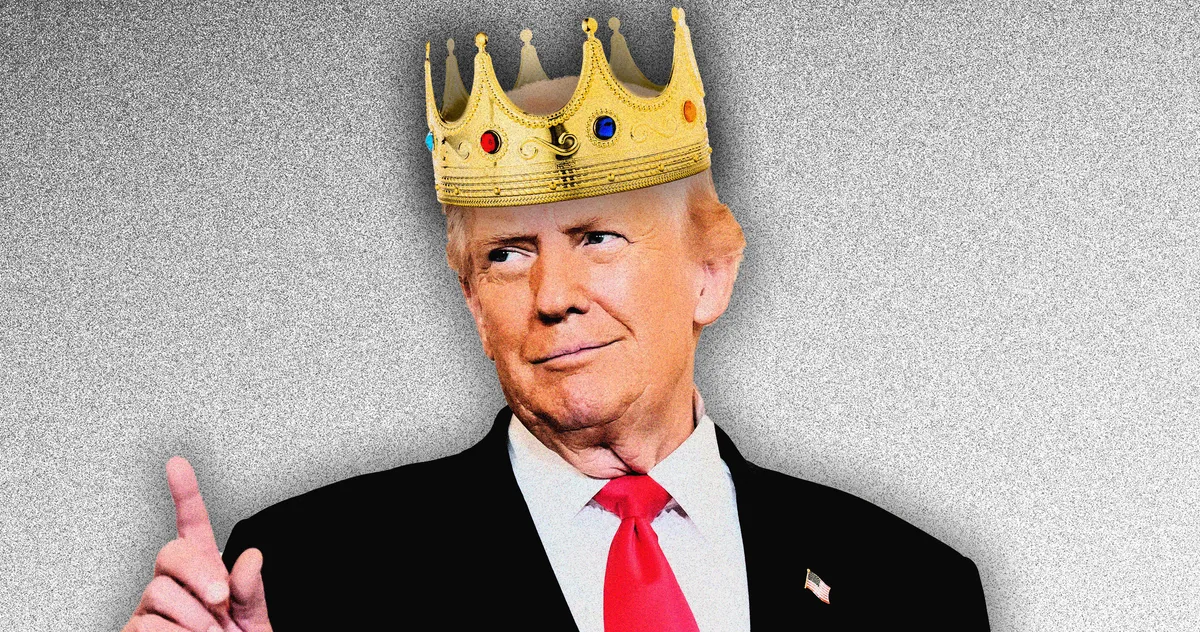Copyright New York Magazine

There’s a large and obvious disconnect in the Democratic Party strategy for combatting Donald Trump this year and in the 2026 midterms. Democratic elites and many activists (not to mention millions of No Kings protesters!) are convinced the 47th president is engaged in an authoritarian power grab that could entrench his kind of politics for a long time to come. But again and again, party strategists keep telling Democrats not to talk much about it. The spanking new “Deciding to Win” report from the Democratic Establishment group Welcome PAC makes this prescription repeatedly: Convince voters that we share their priorities by focusing more on issues voters do not think our party prioritizes highly enough (the economy, the cost of living, health care, border security, public safety), and focusing less on issues voters think we place too much emphasis on (climate change, democracy, abortion, identity and cultural issues). In a recent interview my colleague Benjamin Hart conducted with centrist Democratic super-strategist Lis Smith, she suggested the same thing with respect to what went wrong last year: [T]he biggest mistake we made in 2024 was not leading every single conversation by talking about the economy. When people feel like they are one accident, one incident, one layoff away from financial collapse, they do not want to hear us starting conversations by saying, “The most existential issue you should care about is democracy.” And despite the alarm often expressed by progressive activists about Trump’s authoritarian aspirations, progressive “populist” strategists almost invariably prefer appeals to voters’ material interests as opposed to such abstract matters as the U.S. Constitution or institutional barriers to a would-be tyrant like Trump. Again, the standard leftist critique of Kamala Harris’s campaign holds the all this pointy-headed talk about “democracy” was a donor-driven distraction from the class-warfare messaging that might have beaten Trump but also distressed rich Democratic elites. To be clear, whatever you think of the credibility of Harris’s claims that Trump posed a “threat to democracy,” nine months into his second term we know for a fact that he does indeed represent a threat to democracy, and a near and present threat at that. Yet Democratic politicians are being told by their party’s wise heads to put a sock in it and instead focus public attention on Trump’s performance on kitchen table issues. Apparently, Trump’s aggressive work towards creation of the most imperial presidency ever isn’t something discussed at kitchen tables, so it’s not worth a lot of attention. You can see this disconnect in action right now during the government shutdown crisis. In truth, Democrats chose to trigger the shutdown at the end of September because they were at a point of near-panic over Trump’s rapid construction of an imperial presidency. With both congressional Republicans and (so far) the U.S. Supreme Court offering zero resistance to Trump’s assertions of unlimited authority over national affairs, Democrats seized on their only leverage point: the need for Democratic votes to keep the government open. But to hear Democrats talk about it, all they really want is an an extension of Obamacare premium subsidies — a very worthy goal, but one they could have pursued without a government shutdown. And worse yet, if they succeed and (as his own pollster is advising him to do) Donald Trump imposes an Obamacare subsidy extension on his party, what Democrats will have accomplished is taking the issue right off the table for the 2026 midterms. In addition, the shutdown itself is making life miserable at many kitchen tables, including those of the members of public employee unions that are now breaking solidarity with congressional Democrats. Even as some Democrats pretend they aren’t that worried about threats to democracy, Trump is working overtime to thwart democracy in the midterms via a vast smorgasbord of measures to prevent and if necessary overturn adverse election results. Normally, given Trump’s persistent unpopularity, Democrats could be confident of breaking the GOP’s fragile governing trifecta next year. But instead the president has initiated an entirely unprecedented mid-decade gerrymandering blitz that will become unstoppable if the Supreme Court responds to his demand to gut what’s left of the Voting Rights Act. He’s also effectively plotting another attempted insurrection with better tactics and a more united party behind him. If against all prior odds the GOP holds onto Congress in 2026 by such methods, America will have become what the experts call a “competitive authoritarian” country, operating a hybrid system with elections but no real democracy. The consequences for those relying on a vibrant and viable opposition to represent their interests on kitchen-table issues against a powerful and corrupt oligarchy will be enormous. You’d think this situation would be worth mentioning and perhaps emphasizing, unless Democrats truly believe swing voters are too stupid, selfish, or short-sighted to care. Are Americans committed to democracy only so long as it manifestly delivers more short-term economic benefits than an authoritarian alternative? If so, we have bigger problems than higher Obamacare health insurance premiums, as we’ll discover when a future GOP regime wipes Obamacare, the Great Society, and the New Deal right off the books.



